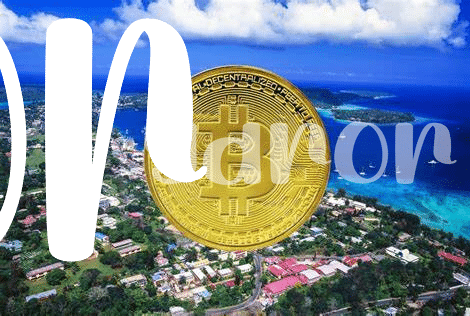Introduction to Vanuatu’s Virtual Asset Business Act 🌏

Vanuatu’s Virtual Asset Business Act has emerged as a progressive legal framework in the arena of blockchain technology. By providing guidelines for the operation of virtual asset businesses, this act is paving the way for innovation and growth in Vanuatu’s digital economy. It signifies the government’s recognition of the importance of embracing blockchain developments and fostering a conducive environment for such enterprises to thrive. This legislation sets a precedent for other nations to consider similar measures in adapting to the evolving landscape of virtual assets.
The Virtual Asset Business Act reflects Vanuatu’s commitment to staying abreast of technological advancements while ensuring regulatory oversight. It signifies a proactive approach towards nurturing a secure and transparent ecosystem for virtual asset businesses to operate within the country’s jurisdiction. By establishing clear guidelines and standards, Vanuatu aims to attract blockchain companies seeking a supportive regulatory environment, positioning itself as a favorable destination for digital asset ventures.
Understanding the Impact on Blockchain Industry 🔍
Vanuatu’s Virtual Asset Business Act sets a significant precedent in the world of blockchain regulation. By providing a clear framework for virtual asset businesses, it offers much-needed guidance and stability in an industry often plagued by uncertainty. This Act has the potential to shape the future landscape of blockchain, promoting transparency and accountability while fostering innovation. The impact of this legislation extends beyond Vanuatu, as it sends a powerful message to global regulators about the importance of adapting laws to accommodate emerging technologies. Embracing the Virtual Asset Business Act could pave the way for a more secure and thriving blockchain industry worldwide.
Key Features of the Virtual Asset Business Act 📜

The Virtual Asset Business Act in Vanuatu introduces a regulatory framework that aims to provide clarity and legitimacy to businesses operating within the blockchain space. One of its key features is the establishment of licensing requirements for virtual asset service providers, ensuring a higher level of accountability and consumer protection. Additionally, the act mandates strict anti-money laundering and counter-terrorism financing provisions, aligning Vanuatu with international standards and fostering trust in the industry. These features create a conducive environment for blockchain businesses to thrive while safeguarding the interests of stakeholders.
Benefits for Businesses and Investors 💼

The Virtual Asset Business Act in Vanuatu brings forth a myriad of advantages for both businesses and investors operating in the blockchain realm. By offering a regulatory framework that fosters innovation and compliance, this act creates a conducive environment for growth and expansion within the industry. Businesses can benefit from increased legal clarity and investor confidence, leading to heightened participation and investment opportunities. Investors, on the other hand, gain a sense of security and assurance in their dealings, ultimately contributing to a more stable and sustainable ecosystem. With these enhanced conditions, Vanuatu’s Virtual Asset Business Act paves the way for a promising future in blockchain entrepreneurship and investment. For more insights on government initiatives in Zimbabwe, particularly on Bitcoin and blockchain, check out this informative article on government initiatives on bitcoin and blockchain in Zimbabwe.
Potential Challenges and Criticisms ⚠️
Potential challenges and criticisms of Vanuatu’s Virtual Asset Business Act may revolve around concerns regarding regulatory oversight and compliance. Critics might argue that the Act could potentially create loopholes for illicit activities in the blockchain industry, leading to issues such as money laundering or terrorist financing. Furthermore, there could be skepticism about the effectiveness of the regulatory framework outlined in the Act, with some questioning its ability to adapt to the rapidly evolving nature of blockchain technology. Overall, navigating these challenges and addressing criticisms constructively will be key to ensuring the long-term success and legitimacy of Vanuatu’s regulatory approach to virtual assets.
Future Implications for Global Blockchain Regulation 🌐

Vanuatu’s Virtual Asset Business Act sets a precedent for global blockchain regulation. As other countries observe its impact on fostering innovation and attracting investment, they may feel compelled to enact similar laws to stay competitive in the rapidly evolving digital economy. This move could lead to a more standardized approach to regulating blockchain technologies worldwide, creating a more conducive environment for businesses and investors operating in this space. The harmonization of regulations across borders could also enhance collaboration and cross-border transactions within the blockchain industry. Countries like Afghanistan and Vietnam are already taking steps towards regulating cryptocurrency and blockchain activities, demonstrating a growing global interest in this emerging sector.
government initiatives on bitcoin and blockchain in Vietnam
